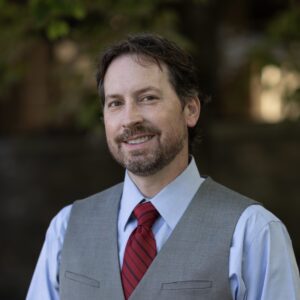“The most interesting, creative, political solutions we Christians have to offer our troubled society are not new laws, advice to Congress, or increased funding for social programs—although we may find ourselves supporting such national efforts. The most creative social strategy we have to offer is the church.”1
On November 26, 2018, reports emerged that a Chinese scientist disregarded ethical conventions for human genome engineering and modified the genome of twin baby girls utilizing the technology known as CRISPR, rendering these girls resistant to HIV. The scientific community overwhelmingly condemned this practice over two dominant concerns that guide much bioethical deliberation, namely the safety and efficacy of the technique. These concerns generate questions such as “What are the risks associated with CRISPR?” and “Do the benefits outweigh them?”
The prospect of human genome modification raises many additional questions pertaining to personhood, human limits, and the values undergirding biotechnology. How ought the church approach such questions, and what is the relationship between the church and emerging biotechnology? In what follows, I examine the unique contribution of the church in addressing the ethical assumptions undergirding advances in genomic science. My intention is not to deny the value and potential societal benefits associated with biotechnological applications but to shine a spotlight on the false perception of biotechnology as value neutral and to examine the church’s role in challenging established secular assumptions about progress and human uniqueness undergirding biotechnology. Too often, the church’s grammar fits squarely within the confines of secular reason. As Stanley Hauerwas claims, this produces “inelegant sentences such as ‘God is love’ or ‘I believe that Jesus is Lord, but that is just my personal opinion.’ Such sentences could only be produced when the simple complexity of the narrative that makes us Christians has been left behind.”2 Therefore, the last part of this essay is a call for the church to think, speak, and act like the church for the sake of the world.
Human beings have always modified the natural world in accord with various wants and needs, but modern civilization is the first properly technological civilization. George Grant defines modern technology as the co-penetration of making and knowing.3 By this he means technology increasingly acts as the medium through which human beings understand themselves and the world, resulting in the perception of the natural world as standing reserve and awaiting more efficient and streamlined technological refashioning to fulfill humankind’s own appetites, interests, and desires. A world no longer understood as given, one seen as nothing other than raw material, is precisely the kind of world amenable to human mastery and control. Biotechnology extends the notion of nature’s standing reserve to human nature. Consequently, this generates modes of making and knowing that actualize various desires and extend societal perceptions of limits, “exalting the possible above what is.”4 As such, biotechnology prioritizes the raw possibility of human making over and against human making shaped by responsiveness to creation and its limits.
While we cannot ignore the pervasiveness of technology, we remain relatively unaware of its role in determining what and who we understand ourselves to be. This results from an emphasis on the development of technology within society with little to no reflection on technology’s capacity to shape society. Indeed, biotechnology develops within a supposedly value-neutral sphere. It is how we apply the technology, so the thinking goes, that raises moral questions. The ethical discussion accompanying the genetic engineering technology known as CRISPR (Clustered Regularly Interspaced Short Palindromic Repeats) offers the most recent iteration of such logic. Developed in 2007, CRISPR revolutionized gene editing due to its low cost, precision, and ease of use. Furthermore, CRISPR can induce both temporary genetic changes by targeting non-reproductive (somatic) cells and permanent changes by targeting reproductive (germline) cells, leading to a host of putative therapies and enhancements.
As we have seen, Grant helpfully exposes the value-ladenness of all technology, thus revealing a crucial link between biotechnology and expressions of justice and human identity. When considered alongside Brent Waters’ assertion that technology “satisfies prior desires in often unanticipated ways,”5 we can begin to address the embedded values undergirding the pursuit of human genetic engineering. Put simply, genome engineering satisfies and reinforces humanity’s desire for mastery, control, and overcoming limits.6 Geneticist Eric Cantor’s statement on the potential rewriting of human genomes provides a fitting example: “When I think of writing genomes, I like to think of the different genres that people could write. Personally, I like fiction—coming up with totally novel genomes, like making people who are engineered to get their energy from photosynthesis, or a plant that can walk.”7 Note Cantor’s characterization of genome modification as enabling the extension of human limits and the realization of a possible human future over and against any account of a given reality. Put differently, genetic engineering allows humans to refashion themselves in their own image. At this point it is important to recognize that many scientists pursue genome editing research with the hope of alleviating suffering and curing disease; surely not all scientists want to create plants that can walk. Despite this fact, ethical discussions occur after biotechnological development, and such discussions rarely move beyond a risk/benefit analysis dominated by questions of safety, efficacy, and societal consensus.8 Consequently, mastery and control remain the imaginative foundations upon which genetic engineering develops.
What, then, does genetic engineering have to do with the church? We must begin by recognizing the church’s complicity in the aforementioned technological rationality that pervades modern society and gears us toward mastery and control. Too often, Christians adopt the commonly held assumption that wisdom primarily involves the proper use of biotechnology while ignoring problematic accounts of justice and human identity undergirding it. In doing so, the church enacts a bifurcated reason that grants technological rationality control over matters of public life, thereby relegating Scripture’s truth claims to the realm of privatized, spiritual life. However, Scripture proclaims no such separation but “locates human governance within divine governance.”9 Thus, the church functions as the location where God’s people gather to listen and respond to the Word of God and to rehearse and proclaim God’s revealed truth about ourselves and the world. The church’s task, then, is not to seek recognition within secular framings of reality but rather to remain faithful in its proclamation of the reality of the world and to enact this reality for the sake of the world.
The Christian account of reality liberates humanity from idolatrous self-perception and the pursuit of mastery and control over human nature. Crucially, this is not one interesting account of reality among others but the true account made known by God in Jesus Christ, the origin, center, and end of all reality. Thus, the church acts as a site of resistance to decentered and delimited existence insofar as it draws humanity back to its real center in Christ. The sacraments of baptism and Communion represent two significant ways the church accomplishes this task. In baptism human beings are claimed as God’s own and offer praise for their finite creaturely form and God-given limits. Participation in the Communion celebration draws individuals into the center of their social existence as the Body of Christ. For the Christian, then, autonomous self-actualization remains an impossibility, since “human beings, when they understand themselves in faith, are entirely wrenched away from themselves and are directed toward God.”10 Thus, the church is the existential reality through which humanity comes to fundamental recognition of its being in Christ.
Furthermore, the church as embodied Christ community remains the fellowship of sinful humanity that responds in faith to the revelation of God in Christ. To be clear, this is not to suggest that membership in the Body of Christ precludes one from participating in genomic research or supporting various genetic therapies. Instead, it is to suggest that the Body of Christ apply the distinctly Christian account of reality to all matters of public and private life. Christians today predominantly feel at home within a technological paradigm bent on mastery and control, and this points to a primary trust in the world—a forgetfulness of the church’s proclamation of the reality of the world in Christ. The church proclaims good news to a society bent on the incessant desire to reframe the world according to self-imposed appetites, interests, and desires. Crucially, this expression remains possible only insofar as the church maintains its distinctive identity in Christ. The church as Christ community points the world to this same reality, freeing human beings to live according to the image of God they already bear. By this, the church demonstrates its formation to an actual reality made known in Christ and points the world to its ultimate end in Christ.
1. Stanley Hauerwas and William H. Willimon, Resident Aliens: Life in the Christian Colony, (Nashville: Abingdon Press, 2014), 82-83.
2. Stanley Hauerwas, The Work of Theology (Grand Rapids: Eerdmans, 2015), 126.
3. George Grant, Technology and Justice, (Toronto: House of Anansi Press, 1986), 13.
4. Ibid., 34.
5. Brent Waters, Christian Moral Theology in the Emerging Technoculture: From Posthuman Back to Human, (Surrey: Ashgate Publishing, 2014), 8.
6. Michael Sandel, The Case Against Perfection: Ethics in the Age of Genetic Engineering, (Harvard: Belknap Press of Harvard University, 2009), 85-100.
7. David Ewing Duncan, “The Next Best Version of Me: How to Live Forever,” Wired Magazine, (March 27, 2018).
8. “Human Gene Editing International Summit,” https://www.nationalacademies.org/news/2015/12/on-human-gene-editing-international-summit-statement. (accessed March 15, 2021).
9. Brian Brock, Singing the Ethos of God: On the Place of Christian Ethics in Scripture, (Grand Rapids: Wm. B. Eerdmans, 2007), 288.
10. Dietrich Bonhoeffer, Act and Being: Transcendental Philosophy and Ontology in Systematic Theology, ed. Wayne W. Floyd and Hans-Richard Reuter, trans. Martin Rumscheidt, (Minneapolis: Fortress Press, 2009), 135.
Gregory Jensen is chair of natural sciences and mathematics at Cairn University. He teaches courses in biology and bioethics. Gregory earned an MS in Biology and an MA in Systematic and Philosophical
Theology, and he is currently pursuing a PhD in Christian Ethics. His research interests span physiology, Christian ethics, and the relationship between science and Christian faith.




